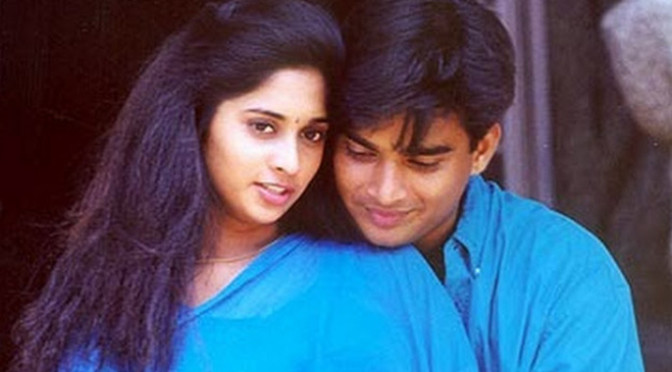
___
***Are you or someone you know in the global Tamil community doing great things? We'd love to feature them: FILL OUT THIS FORM ***
Network & collaborate with Tamil Changemakers from around the world. Request to join our private LinkedIn community here.
___
In this day and age, traditional gendered roles have become more obsolete than ever, with steps being taken in the right direction towards true equality. In fact, females have surpassed their male counterparts by achieving higher levels of education and by taking on more male dominated professions such as medicine, law and engineering. Although gender equality has evolved tremendously over the last few decades, women still struggle with equality within their own households. Both men and women are perfectly capable of doing the same day-to-day tasks which can inadvertently create equal opportunities for partners to share household responsibilities. But many couples still walk into relationships with the idea that women should be the homemakers, while men should be the breadwinners in the family, despite the fact that women also contribute financially to the family. This inequality is especially visible within our South Asian community. With this imbalance in responsibilities and expectation of one’s role, conflict is sure to arise within the relationship. Before we can progress towards more equality and breaking these gender stereotypes, we must first examine where this belief stems from. Are women better than men at multitasking? Are women biologically wired to take on more responsibility? Could it be deep rooted from our culture or a conditioned behaviour learnt from our upbringing?
WOMEN ARE NO BETTER THAN MEN AT MULTITASKING
According to recent studies, men and women are equally capable of multitasking with no signs of substantial gender differences. In fact, the study tested to see whether women were more competent at switching between tasks and balancing multiple tasks at the same time. The findings suggest that a woman’s brain is no better than a man’s at either of these pursuits. The only difference that was noted was that women simply do more work. To put things into perspective, recent data revealed that Australian men are doing more domestic work than ever before, but women still do the bulk of the household chores. According to Associate Professor Ruppanner from Melbourne, “working Australian women have seen their total time across work and family activities increase over time, with bread-winning mothers spending four hours more across these activities per week than bread-winning fathers.” Men on the other hand spend three hours more on leisure time, rather than household work. With that being said, men should strive to contribute more to domestic responsibilities as they are perfectly capable of managing multiple tasks in the same way as women.
MOTHERS ARE BIOLOGICALLY WIRED TO TAKE ON MORE RESPONSIBILITY
Given that a woman’s body is biologically programmed to carry a pregnancy, conceive and breastfeed their child, it is only natural for a woman to feel like a caregiver and take on more of the child rearing work. These particular experiences are in fact what create a bond between a mother and their child. Similarly, it was also found that if a father was more involved in the earliest days of the child’s life, a stronger bond was felt between the father and their child later in life. Therefore, if men are able and willing to create a work-life balance and can find the time to take on caregiving responsibilities, this would maintain the status quo. In relation to the division of household chores however, men and women are not biologically predisposed to want to do the laundry or take out the trash. For example, women are often expected to do the dishes, clean the house and do the laundry while men are expected to take out the trash. The only way to break these stereotypical gendered roles is by changing our own attitudes and beliefs towards doing certain chores in order to serve as a role model to our younger generation.
CULTURE AND BELIEFS PLAY A ROLE WITH WOMEN AND THEIR ATTITUDES TOWARDS HOUSEHOLD DUTIES
If you grew up with parents who were arranged, you might be familiar with the term ‘Dowry’. Brides are expected to give a dowry to the groom in the form of money or an investment. This was believed to be in exchange for the groom to take care of the bride financially. Although dowries were considered to be illegal since 1961, many Tamil households still hold onto these customs in the western world. Many parents will buy their daughters properties, spend more money on the wedding, buy their daughter a new car to show her market value to her groom. This example is exclusive to brides and grooms within the same culture. Similarly, parents will pass on their cultural norms and beliefs onto their children where a woman is expected to be docile, submissive, and cater to her man.
It is no wonder that women tend to do more within the household as it is practically ingrained within them. It is important to bring this topic into light and to undo these generational patterns in order for us to lead a happier and healthier life. We must practice mutual love, respect and appreciation for one another and must not take each other for granted. I hope that we can break these societal norms and inspire our youth to progress towards more equality, especially within the household for a more harmonious relationship between their partner.
Reference
Leah Ruppanner, Associate Professor in Sociology and Co-Director of The Policy Lab, University of Melbourne. Women Are Not Better at Multitasking. They Just Do More Work, Studies Show (sciencealert.com)

Related Articles:
- "The Tamil Creator Podcast (Ep.44): Vas Saranga - Canadian Actor, Writer & Entrepreneur (TheOnlineActor.com)"
- "The Tamil Creator Podcast (Ep.43): Roveena - Multi-Award Winning Canadian Recording Artist, Songwriter & Pianist"
- "The Tamil Creator Podcast (Ep.42): Kartik Bala - CEO & Co-Founder of SnapSmile, AI-Driven Oral Health Monitoring App"
- "The Tamil Creator Podcast (Ep.41): Dr. Saskia Sivananthan - Chief Research & KTE Officer At The Alzheimer Society of Canada"
- "The Tamil Creator Podcast (Ep.40): Roy Ratnavel - From Mail Clerk To Executive Vice-President at CI Financial"
- "The Tamil Creator Podcast (Ep.39): Luxy Thuraisingam - Storyteller & Leader, Head of Global Partner Marketing At Cisco"
- "The Tamil Creator Podcast (Ep.38): Sathish Bala - CEO of EdTech Startup Schoolio + Founder of desiFEST (largest South Asian Music Festival in North America)"
- "Award-Winning Tamil-American Author And Educator SJ Sindu, Releases Second Novel Called "Blue-Skinned Gods" That Explores Identity, Faith, Family & Sexuality"
- "Serial Entrepreneur Vinoth Kumar Created Singapore-Based App ABL-ify To Remove Stigmas Around Autism In Asian Communities"
- "Boston-Based Suba Suntharalingam Overcomes Challenges As An Immigrant To Start Non-Profit Providing Opportunities For The Wounded, Widows and Orphans of War In Sri Lanka"
- "Elite Athlete, Coach, Future Chiropractor & Entrepreneur Abirami Shanmugaratnam Is Making Waves In The Athletic Performance Industry"
- "Toronto's OG Food Writer Suresh Doss Is Using His Reach And Voice To Help Engineer A Comeback For Beleaguered Restaurant Industry"
- "Ballet And Kung Fu Trained Australian Actress & Writer Rubi Balasingam Is Promoting Tamil Voices In Aussie TV And Film"
- "Yathusha Kulenthiran's Marketplace For Environmentally Sustainable Palmyra Products Empowers Female Artisans In Sri Lanka"
- "Australian-Tamil Entrepreneur Sujan Selven Is Creating Economic Opportunities For Remote Villages In Northeast Sri Lanka Using Upcycled Devices & Improved Connectivity"
- "Crypto Tinhorn & Former Journalist Anand Venkateswaran Talks About Buying A $69M Digital Art Piece, Collecting Stories & Catalyzing Change"


























